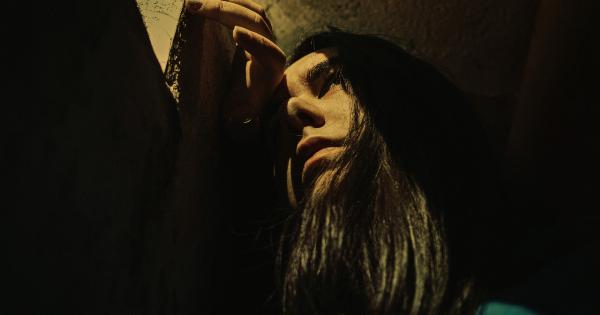Bipolar disorder, also known as manic-depressive illness, is a type of mood disorder characterized by extreme episodes of highs (mania or hypomania) and lows (depression).
In this article, we will dive into the facts you need to know about bipolar disorder.
1. The Types of Bipolar Disorder
There are different types of bipolar disorder, which are identified based on the pattern and severity of the episodes. The types are:.
- Bipolar I disorder – characterized by manic episodes that last for at least 7 days or require hospital care and depressive episodes that last at least 2 weeks.
- Bipolar II disorder – characterized by hypomania (less severe form of mania) and depressive episodes.
- Cyclothymic disorder – characterized by milder symptoms of hypomania and depression that last for at least 2 years.
- Other specified and unspecified bipolar and related disorders – these include bipolar and related disorders that don’t fit into the other categories.
2. The Symptoms of Bipolar Disorder
The symptoms of bipolar disorder vary between the manic and depressive episodes:.
Manic Episode
- Feeling overly happy or excited
- Feeling overly irritable
- Talking very fast or impulsively
- Having racing thoughts
- Having trouble sleeping
- Engaging in risky behaviors like drug use, gambling or unprotected sex
Depressive Episode
- Feeling sad, hopeless or worthless
- Losing interest in previously enjoyed activities
- Feeling tired or lacking energy
- Having trouble sleeping or oversleeping
- Hurting oneself or thinking about suicide
3. The Causes of Bipolar Disorder
The exact cause of bipolar disorder is not known. However, it’s believed to be a combination of genetic, environmental and brain-related factors:.
- Genetic factors – bipolar disorder tends to run in families, suggesting that there may be a genetic component to the illness.
- Environmental factors – traumatic or stressful events, drug or alcohol abuse may trigger the onset of bipolar disorder.
- Brain-related factors – abnormal functioning of certain brain chemicals, such as dopamine, serotonin or norepinephrine, may contribute to bipolar disorder.
4. The Treatment of Bipolar Disorder
Bipolar disorder can be treated with a combination of medication and psychotherapy. The medications used to treat bipolar disorder are:.
- Mood stabilizers – such as lithium or valproic acid, which are used to prevent manic and depressive episodes.
- Antipsychotics – which can help control manic symptoms.
- Antidepressants – which can be used to treat depressive symptoms, but may increase the risk of mania.
Psychotherapy, such as cognitive behavioral therapy (CBT) or psychoeducation, can help you manage your symptoms, improve your relationships and enhance your overall quality of life.
5. Coping Strategies for Bipolar Disorder
Living with bipolar disorder can be challenging, but there are ways to cope with the illness:.
- Stick to a routine – getting enough sleep, eating regular meals and exercising regularly can help stabilize your mood.
- Avoid alcohol and drugs – these substances can trigger episodes of mania or depression.
- Learn stress management techniques – mindfulness meditation, deep breathing or yoga can help reduce stress and anxiety.
- Have a support system – reach out to family and friends or join a support group for people living with bipolar disorder.
6. Myths and Misconceptions About Bipolar Disorder
There are several myths and misconceptions about bipolar disorder, including:.
- Myth: People with bipolar disorder are dangerous or violent.
Fact: People with bipolar disorder are not more likely to be violent than the general population. - Myth: Bipolar disorder is just a mood swing that everyone experiences.
Fact: Bipolar disorder is a serious mental illness that requires medical attention. - Myth: Only adults can have bipolar disorder.
Fact: Bipolar disorder can develop in children and teenagers as well.
7. When to Seek Help for Bipolar Disorder
If you suspect that you or someone you know may have bipolar disorder, it’s important to seek help from a mental health professional. Bipolar disorder can be diagnosed and treated effectively, allowing individuals to lead a fulfilling life.
8. The Importance of Self-Care for People with Bipolar Disorder
Self-care is crucial for people with bipolar disorder. Taking care of your physical, emotional and mental health can help prevent manic and depressive episodes from occurring. Some self-care practices include:.
- Getting enough sleep
- Eating a healthy diet
- Exercising regularly
- Maintaining a regular sleep and wake schedule
- Engaging in relaxing activities like meditation or mindfulness
9. Resources for People Living with Bipolar Disorder
There are several resources available for people living with bipolar disorder, including:.
- The National Alliance on Mental Illness (NAMI) – provides information, advocacy and support for people living with mental illness
- The Depression and Bipolar Support Alliance (DBSA) – offers peer support groups, educational programs and resources for people living with bipolar disorder
- The International Bipolar Foundation – provides education, advocacy and support for people living with bipolar disorder worldwide.
10. Living a Fulfilling Life with Bipolar Disorder
Bipolar disorder can be a challenging illness, but with proper treatment and support, people living with this condition can lead a fulfilling life. Remember, seeking help is the first step towards recovery.






























